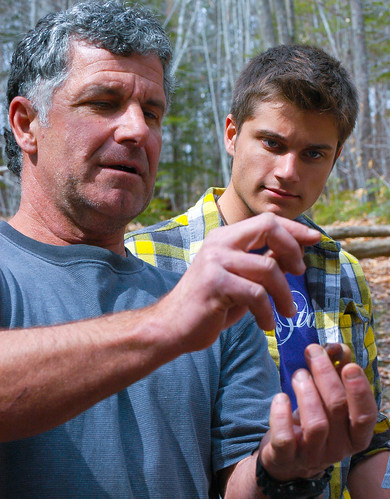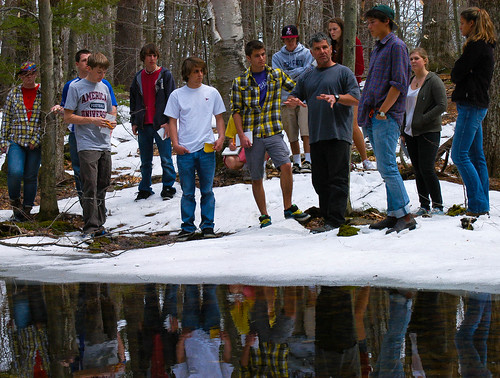Current parent Sally Wright sent me this link to a thought-provoking
Huff Post article indicting that "zero tolerance" policies continue to fail at schools nationally. Working with hundreds of teenagers, we know that some will push limits. The question is: do threats of draconian punitive responses do more to effect behavior than reason and relationship?
Here's a sign of spring:

Alumni returning for reunions include people who learned through real mistakes while here, and their love for the school is often greater for that opportunity.

Aren't schools that lean on zero tolerance--whether public or private--abdicating on
relationship as the key motivator of adolescent behavior?

Wildlife Science visited specific woodland habitats yesterday, including vernal pools which are critical at this time of year.

Proctor's woodlands on Ragged Mountain are "classic upland forest" in Dave Pilla's words, with a healthy diversity of soft and hardwoods providing flourishing habitats. We consider the role of vernal pools to local wildlife (spotted salamanders will be migrating here in upcoming rains and wood frogs will raise a ruckus on warm afternoons) while we hear the rapport of pileated woodpeckers on towering white pines nearby.

With no egress stream that might introduce fish, vernal pools can be identified by "indicator species" that fish would consume. There is something about the concept of indicator species that appeals to me.

Organisms that--by their very presence--inform us of the nature of a biome or habitat.









































